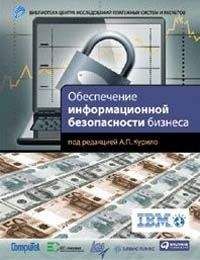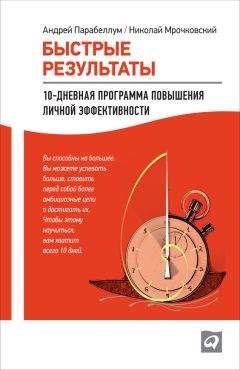Andrew Lobaczewski - Political Ponerology: A Science on the Nature of Evil Adjusted for Political Purposes
between the two above-mentioned relationships. Pathocrats
know that their real ideology is derived from their deviant na-
tures, and treat the “other” – the masking ideology - with
barely concealed contempt. And the common people eventually
begin to perceive this as noted above.
POLITICAL PONEROLOGY
205
Thus, a well-developed pathocratic system no longer has a
clear and direct relationship to its original ideology, which it
only keeps as its primary, traditional tool for action and mask-
ing. For practical purposes of pathocratic expansion, other ide-
ologies may be useful, even if they contradict the main one and
heap moral denunciation upon it. However, these other ideolo-
gies must be used with care, refraining from official acknow-
ledgement within environments wherein the original ideology
can be made to appear too foreign, discredited, and useless.
The main ideology succumbs to symptomatic deformation,
in keeping with the characteristic style of this very disease and
with what has already been stated about the matter. The names
and official contents are kept, but another, completely different
content is insinuated underneath, thus giving rise to the well
known double talk phenomenon within which the same names
have two meanings: one for initiates, one for everyone else.
The latter is derived from the original ideology; the former has
a specifically pathocratic meaning, something which is known
not only to the pathocrats themselves, but also is learned by
those people living under long-term subjection to their rule.
Doubletalk is only one of many symptoms. Others are the
specific facility for producing new names which have sugges-
tive effects and are accepted virtually uncritically, in particular
outside the immediate scope of such a system’s rule.96 We must
thus point out the paramoralistic character and paranoidal
qualities frequently contained within these names. The action
of paralogisms and paramoralisms in this deformed ideology
becomes comprehensible to us based on the information pre-
sented in Chapter IV. Anything which threatens pathocratic
rule becomes deeply immoral. 97This also applies to the concept
of forgiving the pathocrats themselves; it is extremely danger-
ous and thus “immoral”.
We thus have the right to invent appropriate names which
would indicate the nature of the phenomena as accurately as
96 “Extraordinary rendition” as the nomenclature for illegally transporting
prisoners to countries where torture is practiced comes immediately to mind
as an example. [Editor’s note.]
97 Example: “You are with us, or you are against us.” And being “against us”
means that “you are a terrorist” and thus, immoral. [Editor’s note.]
206
PATHOCRACY
possible, in keeping with our recognition and respect for the
laws of the scientific methodology and semantics. Such accu-
rate terms will also serve to protect our minds from the sugges-
tive effects of those other names and paralogisms, including the
pathological material the latter contain.
The Expansion of the Pathocracy
The world’s tendency to fasten its gaze adoringly upon its
rulers has a long tradition dating back to the times when sover-
eigns could virtually ignore their subjects’ opinions. However,
rulers have always been dependent upon the social and eco-
nomic situation in their country, even long ago, and even in
pathocratic systems, and the influence of various social groups
has reached their thrones by various means.
Much too common is the pattern of error which reasons that
purportedly autocratic leaders of countries affected by this
pathocracy actually possess decision-making powers in areas
which they in fact do not. Millions of people, including minis-
ters and members of parliaments, ponder the dilemma of
whether such a ruler could not, under certain circumstances,
modify his convictions somewhat and relinquish his dreams of
conquering the world; they continue hope that this will be the
eventual outcome.98 People with personal experience in such a
system may attempt to persuade them that their dreams, al-
though decent, lack a foundation in reality, but at the same time
they sense a lack of concrete arguments on their part. Such an
explanation is in fact impossible within the realm of the natural
language of psychological concepts; only an objective compre-
hension of the historical phenomenon and its essentially devi-
ant nature permits light to be shed upon the causes of the per-
ennial deceitfulness of this macrosocial pathological phenome-
non.
98 This is especially true in the present day when the leaders and parliaments
of many other countries, unhappy with the Bush Neocon administration,
think that diplomacy or new elections in the U.S. will “set things right”. They
do not understand the full nature of Pathocracy and that the psychopaths in
the shadows of this phenomenon will never relinquish control without blood-
shed. [Editor’s note.]
POLITICAL PONEROLOGY
207
The actions of this phenomenon affect an entire society,
starting with the leaders and infiltrating every village, small
town, factory, business, or farm. The pathological social struc-
ture gradually covers the entire country, creating a “new class”
within that nation. This privileged class of deviants feels per-
manently threatened by the “others”, i.e. by the majority of
normal people. Neither do the pathocrats entertain any illu-
sions about their personal fate should there be a return to the
system of normal man.
A normal person deprived of privilege or high position will
go about finding and performing some work which will earn
him a living; but pathocrats never possessed any solid practical
talent, and the time frame of their rule eliminates any residual
possibilities of adapting to the demands of normal work. If the
laws of normal man were to be reinstated, they and theirs could
be subjected to judgment, including a moralizing interpretation
of their psychological deviations; they would be threatened by
a loss of freedom and life, not merely a loss of position and
privilege. Since they are incapable of this kind of sacrifice, the
survival of a system which is the best for them becomes a
moral imperative. Such a threat must be battled by means of
any and all psychological and political cunning implemented
with a lack of scruples with regard to those other “inferior-
quality” people that can be shocking in its depravity.99
In general, this new class is in the position to purge its lead-
ers should their behavior jeopardize the existence of such a
system. This could occur particularly if the leadership wished
to go too far in compromising with the society of normal peo-
ple, since their qualifications make them essential for produc-
tion. The latter is more a direct threat to the lower echelons of
the pathocratic elite than to the leaders.
Pathocracy survives thanks to the feeling of being threat-
ened by the society of normal people, as well as by other coun-
tries wherein various forms of the system of normal man per-
sist. For the rulers, staying on the top is therefore the classic
problem of “to be or not to be”.
99 This should be kept firmly in mind by those who think that getting rid of
George W. Bush and the Neocons will change anything. [Editor’s note.]
208
PATHOCRACY
We can thus formulate a more cautious question: can such a
system ever waive territorial and political expansion abroad
and settle for its present possessions? What would happen if
such a state of affairs ensured internal peace, corresponding
order, and relative prosperity within the nation? The over-
whelming majority of the country’s population would then
make skillful use of all the emerging possibilities, taking ad-
vantage of their superior qualifications in order to fight for an
ever-increasing scope of activities; thanks to their higher birth
rate, their power will increase. This majority will be joined by
some sons from the privileged class who did not inherit the
pathological genes. The pathocracy’s dominance will weaken
imperceptibly but steadily, finally leading to a situation
wherein the society of normal people reaches for power. This is
a nightmare vision to the psychopaths.
Thus, the biological, psychological, moral, and economic
destruction of the majority of normal people becomes, for the
pathocrats, a “biological” necessity. Many means serve this
end, starting with concentration camps and including warfare
with an obstinate, well-armed foe who will devastate and de-
bilitate the human power thrown at him, namely the very power
jeopardizing pathocrats rule: the sons of normal man sent out to
fight for an illusionary “noble cause.” Once safely dead, the
soldiers will then be decreed heroes to be revered in paeans,
useful for raising a new generation faithful to the pathocracy
and ever willing to go to their deaths to protect it.
Any war waged by a pathocratic nation has two fronts, the
internal and the external. The internal front is more important
for the leaders and the governing elite, and the internal threat is
the deciding factor where unleashing war is concerned. In pon-
dering whether to start a war against the pathocratic country,
other nations must therefore give primary consideration to the
fact that such a war can be used as an executioner of the com-
mon people whose increasing power represents incipient jeop-
ardy for the pathocracy. After all, pathocrats give short shrift to
blood and suffering of people they consider to be not quite
conspecific. Kings may have suffered due to the death of their
knights, but pathocrats never do: “We have a lot of people
here.” Should the situation be, or become, ripe in such a coun-
POLITICAL PONEROLOGY
209
try, however, anyone furnishing assistance to the nation will be
blessed by it; anyone withholding it will be cursed.
Pathocracy has other internal reasons for pursuing expan-
sionism through the use of all means possible. As long as that
“other” world governed by the systems of normal man exists, it
inducts into the non-pathological majority a certain sense of
direction. The non-pathological majority of the country’s popu-
lation will never stop dreaming of the reinstatement of the
normal man’s system in any possible form. This majority will
never stop watching other countries, waiting for the opportune
moment; its attention and power must therefore be distracted
from this purpose, and the masses must be “educated” and
channeled in the direction of imperialist strivings. This goal
must be pursued doggedly so that everyone knows what is be-
ing fought for and in whose name harsh discipline and poverty
must be endured. The latter factor – creating conditions of pov-
erty and hardship - effectively limits the possibility of “subver-
sive” activities on the part of the society of normal people.
The ideology must, of course, furnish a corresponding justi-
fication for this alleged right to conquer the world and must
therefore be properly elaborated. Expansionism is derived from
the very nature of pathocracy, not from ideology, but this fact
must be masked by ideology.100 Whenever this phenomenon
has been witnessed in history, imperialism was always its most
demonstrative quality.
On the other hand, there are countries with normal man’s
governments wherein the overwhelming majority of societies
shudders to think a similar system could be imposed on them.
The governments of such nations thereupon do everything they
can within the framework of their possibilities and their under-
standing of the phenomenon in order to contain its expansion.
The citizens of those countries would sigh with relief if some
upheaval were to replace this malevolent and incomprehensible
system with a more human, more easily understood, govern-
mental method with whom peaceful coexistence would be pos-
sible.
100 Example: the events of September 11, 2001, undoubtedly manufactured
by the Pathocracy. [Editor’s note.]
210
PATHOCRACY
Such countries thus undertake various means of action for
this purpose, their quality depending on the possibility of un-
derstanding that other reality. Such efforts resonate within the
country, and the military power of normal man’s countries
limits the pathocracy’s possibilities of armed maneuvers.
Weakening those countries that could possibly stand against
the pathocracy, especially by utilizing the response pathocracy
awakens in some of their deviant citizens, again becomes a
matter of the pathocracy’s survival.
Economic factors constitute a non-negligible part of the mo-
tivation for this expansionist tendency. Since the managerial
functions have been taken over by individuals with mediocre
intelligence and pathological character traits, the pathocracy
becomes incapable of properly administering anything at all.
The area suffering most severely must always be whichever
one requires a person to act independently, not wasting time
searching for the proper way to behave. Agriculture is depend-




